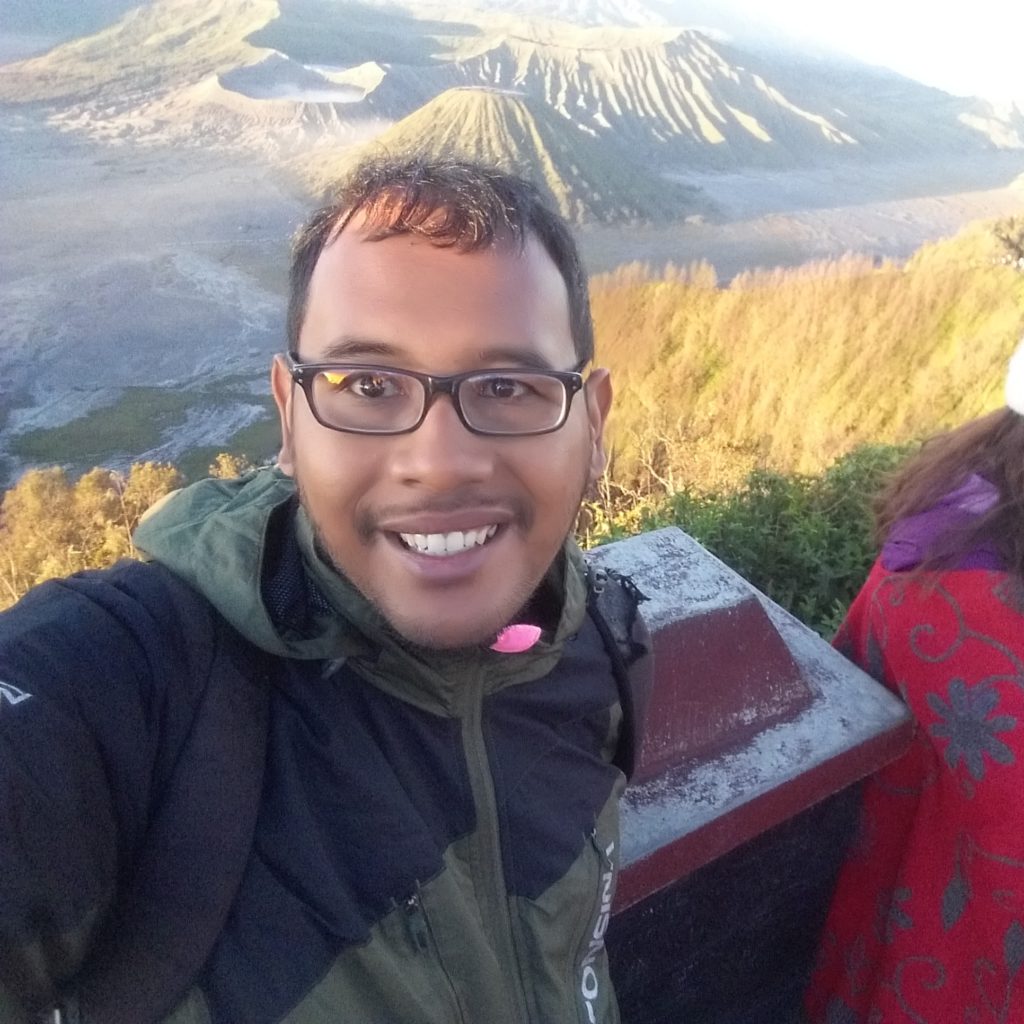
We recently spoke with Adikara Wedhatama, or Dimas, one of our local travel experts based in Yogyakarta, Indonesia. We spoke of the importance of culture, of his favourite spots to visit, and of the dangers of democratic votes!
Interviewed by George Robinson
Dimas chuckles incessantly, and with genuine warmth. His English is perfect, yet with a few idiosyncrasies dotted throughout. He repeatedly calls me “sir”, peppers his speech with rather formal phrases like “if I’m not mistaken”, and utilises the phrase “let me be honest with you” with the poise of an earnest politician. It’s old-fashioned, but I get the impression it’s purposefully playful, playing on the role of the humble guide with graceful confidence.

This is especially true of the use of “sir”, applied to me even though he is a little older. Yet, it doesn’t feel strange – he treats me like a traveller on his tours, guiding me through our conversation, at home teaching me about his home. On the subject of age, I comment that he looks a lot younger.
“Let me be honest with you…the bandana is doing a lot of work here.”
Dimas is wearing a Batik bandana. Batik is an ancient Indonesian art form made with wax resistant dye on fabrics. It can be worn casually but is often used in ritual and is connected with many ceremonies, local celebrations, and broader Indonesian culture. It is apt that I’m drawn to the bandana early on in the conversation since Batik, and Indonesian culture more generally, forms a significant part of Dimas’ identity.
Dimas’ initiation into the world of guiding is becoming a familiar pattern with our guides. While studying for his English diploma, he was advised by a friend, already a guide, to join in with the fun. Fuelled by a desire for the freedom to explore his country – and share it with others – Dimas did not take much convincing.
“Before that, while I was studying, my part-time job was in an office – just doing some paperwork. I definitely didn’t want to keep doing that!”
Dimas details the long and complicated process of getting licensed in Indonesia, first at a provincial level and then at a national level. He has progressed through the ranks and now specialises in the longer, country-wide tours for one of Discova’s main partners in the region.
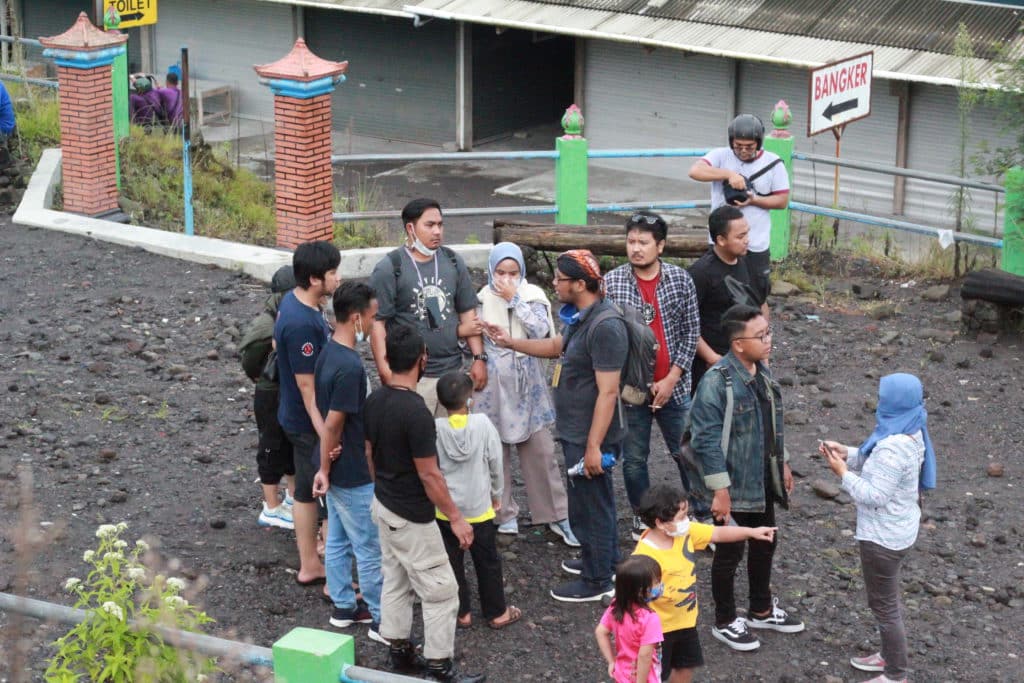
To me, he seems like a natural, born to do this, but he admits it wasn’t always an easy ride, even with his English diploma.
“Actually, I didn’t feel very confident in English because, at first, I’ll be honest, man, although I had learned English in college, once you meet the ‘real’ foreigner from US or from the UK, it’s completely different. The first client that I got at that time, I couldn’t speak for almost half an hour until my friend slapped me on the back and got me going.”
A shy, hesitant Dimas? I would never have imagined. It seems like Dimas hasn’t stopped talking since that slap on the back.
He explains it took a little time to get used to the range of accents and the speed at which people speak, and he freely concedes that Scottish and Irish accents can still be a challenge.
“Your northern accent is okay though, don’t worry, sir”, he reassures me.
Dimas explains that he had been doing contracted work for a few different tour operators as a tourist guide. He was approached through a friend to work for Discova in 2019. This appealed to Dimas since the role offered was a significant step up; a transition from being a tour guide to a trip leader. This role relies upon cooperation with a much wider team and a substantial amount of planning and preparation – a lot more responsibility.
“Let me be honest, that was a great journey in my life at that time. Life is about challenging yourself and pushing on to the next thing. You have to progress. I learned from others, and got help from the team. I managed.”
The work he undertook for Discova also enabled him to further explore Indonesia and organise these long, country-wide itineraries showcasing the very best that Indonesia has to offer.
Dimas relishes the chance to show off historic Yogyakarta. From discovering the exuberant places to chasing culinary delights on a street eats tour, Dimas always enjoys sharing the stories of his hometown. Nearby Borobudur temple, the largest Buddhist temple in the world, is undeniably iconic and warrants hours of exploration – a fantastic place to understand the intrinsic connection between Javanese culture and this place of worship. Take a look at some of the tours Dimas operates here.
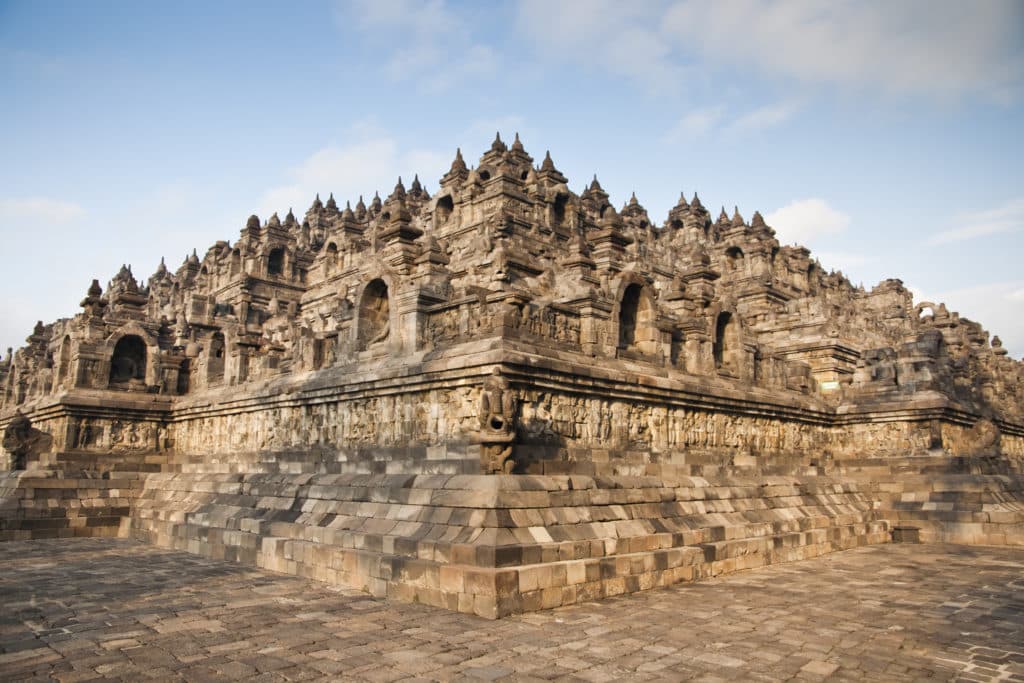
However, besides these standard go-to tourist sites, Dimas decides to focus on the visits to the Batik-making industries, where he takes travellers to visit behind the scenes.
“We take travellers to learn about the craft. Discova contacted the community to arrange this and the community members themselves become the guides. My job is then as a translator, to help them explain their story and the meaning of Batik.”
This is part of a relationship between Discova and the community. Through partnering with them, we aim to bring revenue to the group, bringing tourists where they may not usually visit. In this way, it represents our simple ‘win-win-win’ principle in which all the stakeholders benefit from this relationship.
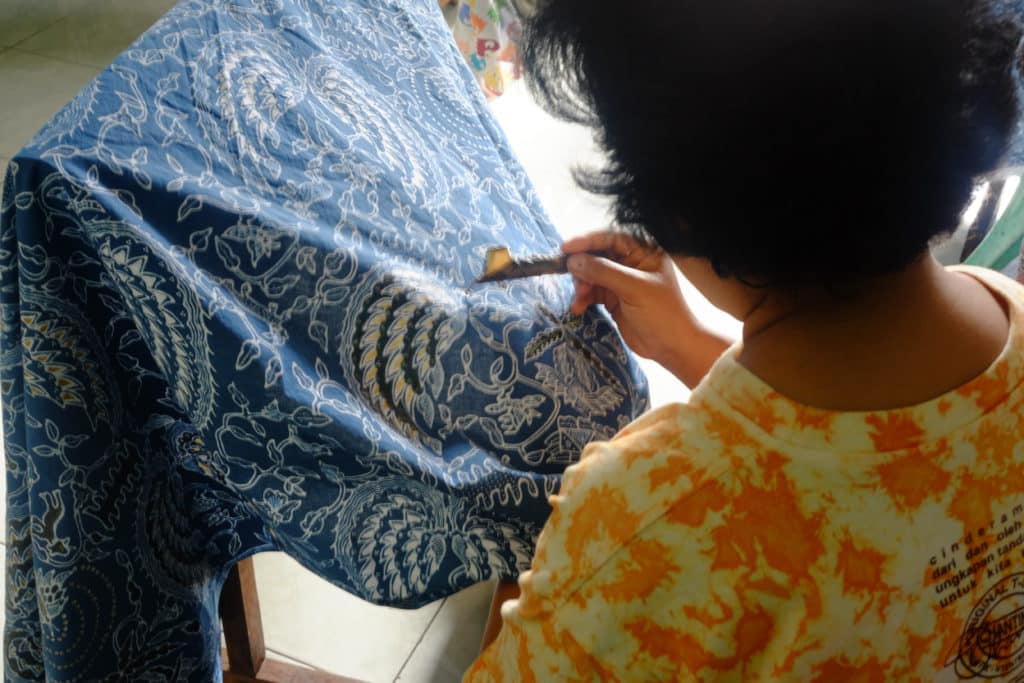
However, Dimas touches on something a little outside of the box, something that is close to his heart and speaks to another benefit of such an interaction:
“You know, to be honest with you, many young Indonesians do not respect Batik in our culture, and that saddens me because it is part of our heritage. I wonder why this may be and what we can do to keep these traditions. It may sound strange, but bringing tourists who are interested in the art form and the stories behind it – I think it shows that Batik is something of value. It shows this is something we should be proud of.”
He warns of a wider move to disregard the old ways, of the danger of using modern tools instead of traditional methods.
“That would mean Batik would lose its soul.”
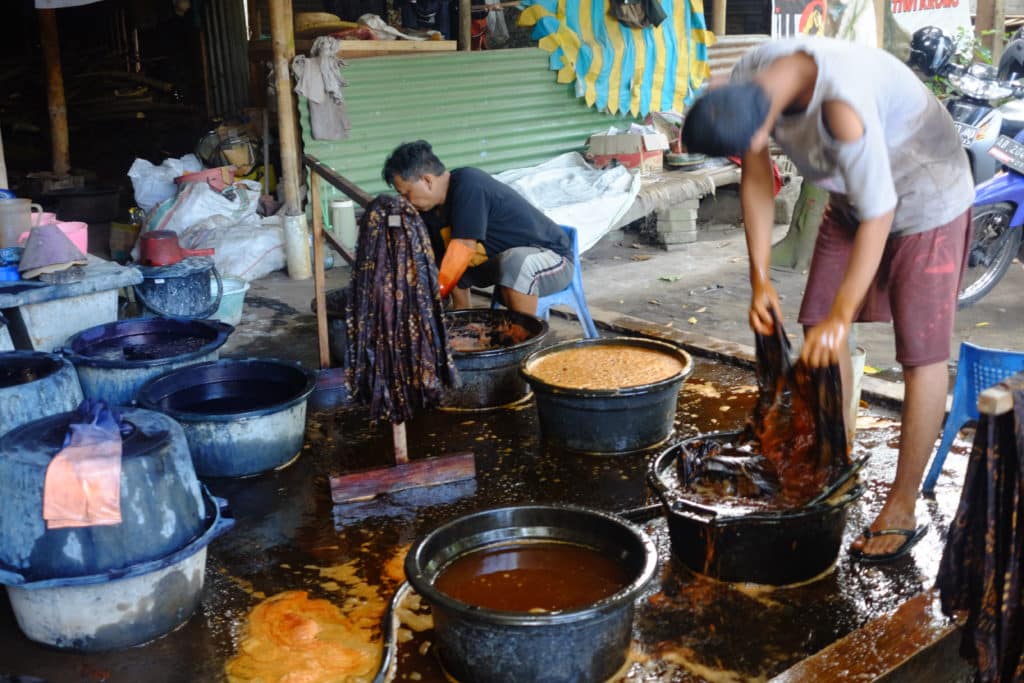
He claims that tourism can save traditional Batik culture. It’s an interesting discussion, to frame the value of a cultural tradition related to its draw for tourists. Dimas insists that’s not quite what he means, but merely suggests that he has seen benefits in the local neighbourhoods as a direct result of renewed tourist interest.
“Even with the old-style Javanese houses. Many people before would simply tear these down to make newer ones – each time I felt this was a little poke in our community. Now, people are beginning to see, we should preserve these old buildings – they are part of our heritage. Same too with preserving some of our old languages and the move to uphold our distinct set of manners. If it needed tourism to point this out to some people, I don’t mind.”
“It’s simple. It doesn’t even matter if the foreigners buy Batik patterns or not. What is important to me is that the young Indonesians take notice and are curious to say, ‘why are the foreigners interested in this? I think this can make them proud.”
I hesitate to agree with him on this, which he – a skilled reader of people – naturally picks up on.
“Sir, let me be honest with you, tourism is a dual-edged blade. It can be used for good and it can be used for bad.”
I ask Dimas for a rundown of his other favourite experiences with travellers on his long tours of Indonesia.
He goes through the magical sunrises at Mount Bromo, spotting large komodos, hiking up volcanoes, and spending time sharing stories while relaxing on beautiful beaches.
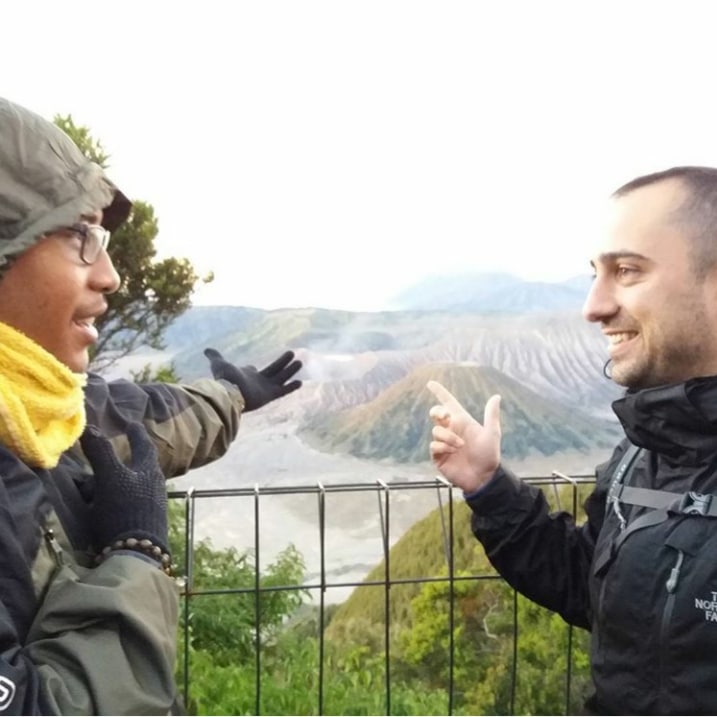
On hearing beaches, I bring up Bali.
“You know, Bali, to me, is only one part of Indonesian culture. I would encourage everybody to come to Yogyakarta if you want to see another side of what it means to be Indonesian.”
So, he wouldn’t recommend Bali?
“No, not at all. That’s not what I mean. Bali is a beautiful island paradise. It’s great for families with its resorts, there are incredible beaches, beautiful scenery…the wellness things…the parties. This is all fantastic if you want that. By all means, go and enjoy it. But, I still recommend going to mainland Java as well to get a better idea of the local life there. With Discova, you can organise a trip that sees the best of both worlds, to get a taste of all sides to Indonesia.”
Speaking of taste, I ask for his thoughts on a recent article we published concerning Indonesian food options, specifically looking at vegan choices. He agrees with the list compiled, and his face lights up when describing gudeg, in particular.
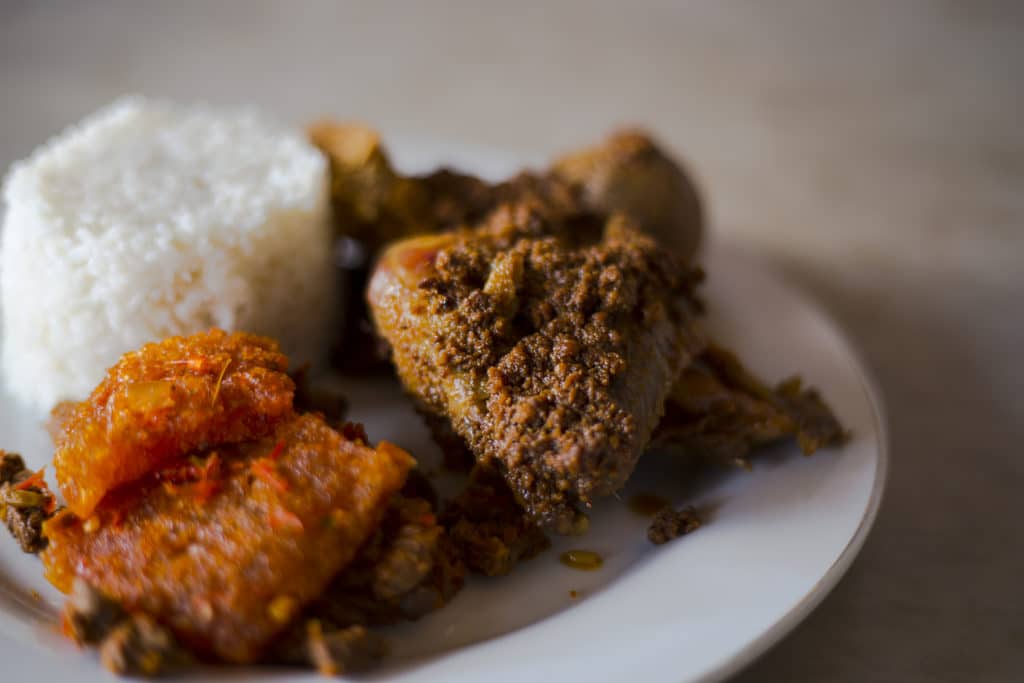
“Oh, that stuff is so good, man, honestly! You know the story of gudeg?”
Gudeg is a slow-cooked jackfruit curry, cooked overnight to allow a whole bunch of delicate spices to ferment and bubble away into a gloriously rich coconut-based concoction.
“It’s connected with workers, the common worker. They had to cut down a lot of jackfruit and coconut trees to build something and wondered what to do with the jackfruit and coconuts. So, they cooked them all up in a big pot with our favourite Indonesian spices. The meal was so delicious and kept them going throughout the day. That’s basically it!”
However, he wants to make one addition to my list of food options, though this would usually be served to accompany food.
“I would say that many travellers really enjoy the coffee we have here. Kopi Joss”
Dimas is referring to the famous charcoal coffee to be had in Yogyakarta, in which a lump of charcoal is dumped into the sweetened brew. This is said to reduce the acidity of the coffee while also infusing a slight caramel taste.
“I’m not a big fan to be honest. But coffee-lovers enjoy this experience. I like to take clients a restaurant, named Kopi Joss. It is mostly related to Yogyakarta youngster culture. People here like to hangout, chill, relax with their friends and drink coffee or tea. And Kopi Joss at the north of Malioboro Street is one of the best places for it. A great place to feel the vibe of the Indonesian youngsters.”
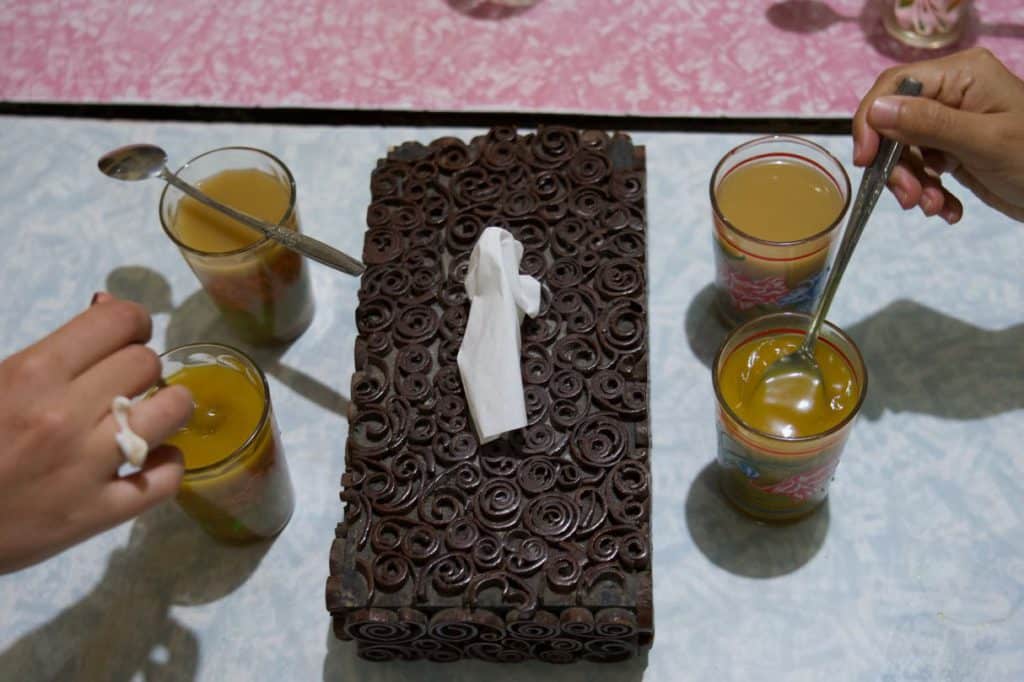
There’s just time in our conversation to talk a little about group management. Much like the other guides I have spoken to, Dimas waxes lyrical over the relationships he has made over time.
“Every time it’s a new experience and an adventure. Even though I go to the same place, its new because of the people I share it with. I learn from them, and they learn from me, and it’s such a lovely thing to be a part of.”
He continues to reflect on the nice feelings he encounters.
“I like when I am telling a story on the bus. It’s normal in the beginning to see that maybe somebody doesn’t want to listen – maybe they want to rest or something – that’s okay.”
“So, I turn off my mic, head to the middle of the bus, usually there is somebody who wants to engage with me. As I speak and answer questions and people seem to enjoy the time, I notice the circle gets larger and larger, and more and more people turn to listen – even the guy who thought he wanted to rest can’t help but be interested!”
He insists that the majority of his experiences have been positive, but relents to allow that there have been difficulties, especially when he first started out.
“I remember, particularly with older people, sometimes they can get tired. So, sometimes a sunrise walk for a view on top of a mountain may not seem so appealing, even though I know it is worth it.”
“One time, I asked, okay, ‘let’s have a vote, who wants to skip the sunrise trek?’ More than half put their hand up! Then I realised I was in a difficult position – do I split the group up? That would be a nightmare for the itinerary. The itinerary! This was to take half the day, what would the clients do instead? I had made a huge problem for myself. I don’t do votes anymore. Too dangerous.”
“Instead, it’s about hinting at the option to skip if they really want to miss out!”
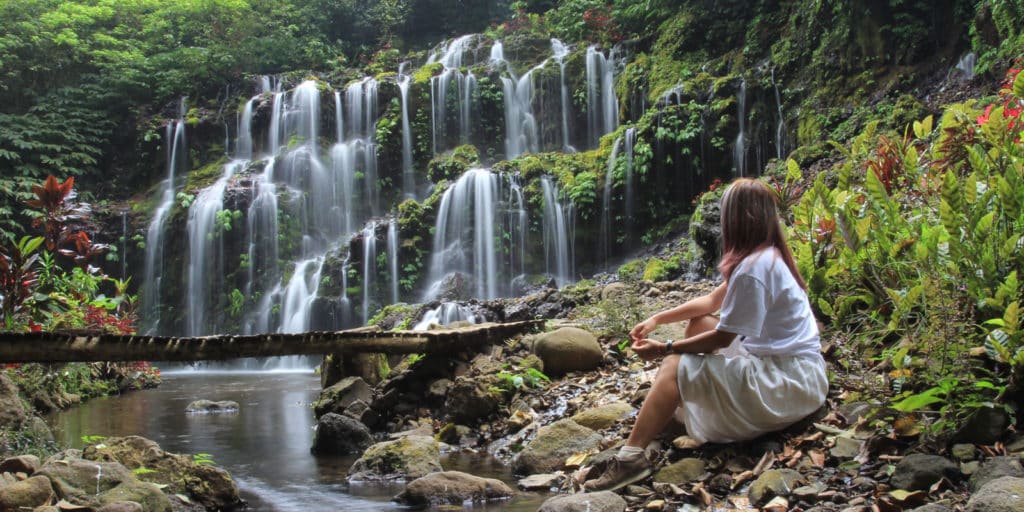
Much like everybody else at Discova, Dimas is counting down the days to when he is able to regularly welcome back travellers. He is hopeful about plans to reopen Bali in July but knows that this is one small step on the long road back to normality for international travel to Indonesia.
However, for our partners and clients, we can get excited about a broader resurgence in travel in 2022 and beyond. Take a look at the inspiring experiences available in Indonesia and see what Discova can provide for your customers- over and above the wonderful personality of Dimas himself!
Don’t hesitate to find out more by getting in touch with our helpful teams.